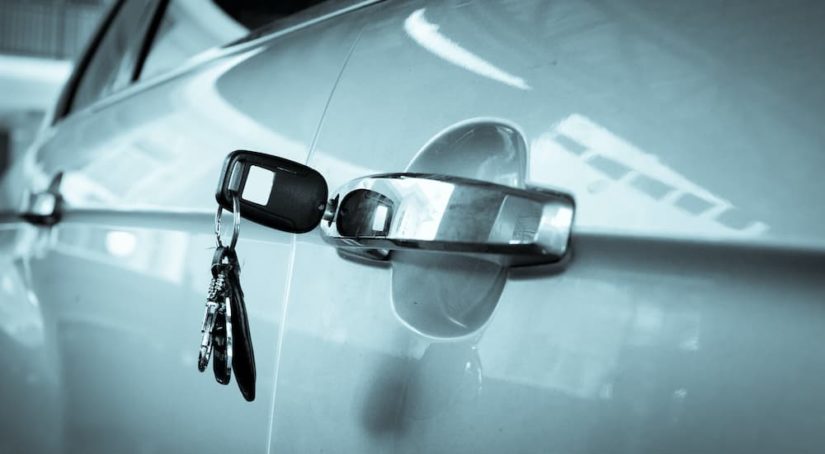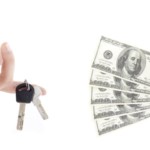Buying and selling cars online used to be pretty rare. Since each individual vehicle has its own history, damage, and possibly even aftermarket customizations, it makes sense that these transactions would occur largely in-person, even as so many other things moved online. But if you type “sell my car” into a search engine today, it’s easy to find all kinds of companies and individuals offering to take your vehicle. While many of them claim that they can offer you the best deal, many of these transactions are too good to be true.
For every legitimate offer, there are dozens of scams that are trying to rip you off. So before you get hit with an avalanche of offers, let’s take a look at some common scams—and how you can avoid them.
Bad Checks
One of the simplest ways to rip off a seller is to pay with a bad check. Many scammers will try to win your trust by forging a certified check. When legitimate, this is a check that has been guaranteed by the check writer’s bank, meaning that the funds have been set aside so the check can’t “bounce.” While this sounds reassuring, forgeries can be pretty convincing, and none of that security is real if the check itself is fake. One way to avoid falling for this is to contact the issuing bank and have them verify the authenticity of the check.
Just make sure to find the bank’s contact information from a genuine source; don’t trust any links or phone numbers sent to you by the “buyer.” Another option is to avoid checks altogether and use a mobile payment service or wire transfer.

Fake Shipping Service
A common scam involves a fake buyer saying that they need the car to be shipped to them. They offer to pay more than the asking price, asking that you send the difference to the “shipping company” so that they can get the car delivered. But once you’ve sent the money off, their original payment gets rejected by your bank, leaving you out of luck. To avoid this scam, shut down any offers that involve intentionally overpaying like this. Generally, anything that overcomplicates the transaction should raise your hackles and warrant some extra scrutiny, at the very least.
Payment Plans
Not every scam involves over-complication, though. This one is pretty simple. Usually, this is a person who will play to your emotions and try to convince you that, although they can’t pay your full asking price all at once, they will pay you in installments over time. But once ownership has turned over, there’s not much you can do if they simply refuse to keep paying. Any action you do take will be time-consuming and probably involve costly legal fees. So, make sure you don’t hand over the title until payment has been made in full.
Fake Escrow
If you’re trying to avoid scams involving fraudulent payments, one thing you can do is go through an escrow service. These services take the payment from the buyer and hold onto it until the sale has been finalized, then give the money to the seller (minus a fee). This can help prevent fraud for both the buyer and the seller, but it only works if the escrow company is legit. If you get a buyer suggesting you go through a particular escrow service, be skeptical. Do your own research, check with state regulators or the Better Business Bureau to make sure the service is trustworthy, and never click on a link sent to you by a stranger.
Phishing Scams
Fraudulent links can be more than just fake escrow services. Scammers might send you what they say is a link to their PayPal, but is actually a site designed to trick you into handing over your login information. Some might also use a fake email address that looks like it belongs to a trustworthy company, but is just a bit off from the real thing. To reiterate, never click on a link that was sent to you by a stranger; always go to any websites yourself to make sure you’re getting the real thing. If you get an email that claims to be from a trusted organization but doesn’t seem quite right, you can find the contact info on the organization’s official website and ask them directly if the offer is legitimate.
Test Drives
While many scams involve high-tech trickery, this one is old school. Reasonably, a buyer is going to want to inspect your car before they buy it and they might request a test drive. This isn’t a red flag in and of itself, but it can be a tricky situation.
Getting in a car with a stranger can be dangerous, but if you let the buyer drive the car by themselves, they might just drive off and never come back. If you do let someone take a test drive, make sure to hold onto some collateral, like the buyer’s driver’s license or the keys to their current car, if they have one.

Difficulties Beyond Scams
Getting straight-up scammed is the scariest scenario, but other difficulties can arise when you’re trying to sell your car, even if everything is on the up and up. If you go through an online reseller, then you may run into issues when it comes to scheduling the inspection. Some of these places give you big windows of time when they might stop by, which can be tough to plan for if you have a busy schedule. And even if you do have the time to jump through all of their hoops, you probably won’t get the best price for your car, since the company’s profit margins depend on you selling it to them for less than they can sell it to someone else.
Selling directly to a private buyer allows you to make the biggest potential profit, but it’s also the riskiest option. Not only do you have to watch out for scammers, but you have to deal with legitimate buyers who think you might be trying to scam them. This means that you’ll have to take steps to assure the buyer that you don’t have anything to hide; for example, provide your car’s history report and find time to schedule a meetup so your buyer can inspect the car. Even when it goes well, selling directly to a private buyer can be stressful and time-consuming.
So What Should I Do?
There are all kinds of modern techniques for ripping off honest folks who are just trying to get a fair price for their car. So instead of using online services, why not go a more traditional route and sell your car directly to a dealer? Dealerships have brick-and-mortar locations where you talk to real people in-person—on a schedule that works for you—instead of trying to set up a time and place to meet a stranger from the Internet who may not end up showing up at all.
Since a dealership is an established business with a vested interest in protecting its reputation, you can hand your vehicle over for inspections and test drives with confidence, knowing that you’ll get accurate information and that your car will be treated well. And, if you want to buy a new car once you’ve sold your old one, you’ll be in the right spot to get a good deal. So the next time you have a car to sell, skip the digital headache and go with the tried and true method: Take it into your local dealership and work with people you can trust.



